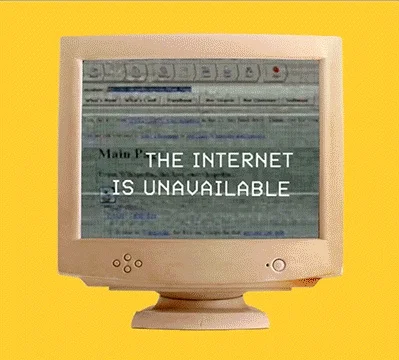Filipinos in the USA Data (2016-2018)**
Total Population
US residents, 2016 (Alone or in combo): 4,089,570
US residents, 2016 (Alone): 2,920,160
Population Growth
Population growth 2000-2016 (Alone): 57.8%
Population growth 2000-2016 (Alone or in combo): 23.5%
Population growth 2010-2016 (Alone): 14.3%
Population growth 2010-2016 (Alone or in combo): 14.5%
Age Distribution
Share of age group 0-17: 16.3%
Share of age group 18-49: 47.3%
Share of age group 50-64: 21.1%
Share of age group over 65: 15.2%
Top States by Resident Population
1 California (1,299,922)
2 Hawaii (220,315)
3 Texas (146,320)
4 Nevada (129,739)
5 Illinois (124,649)
Total population in States: 1,920,945
Education
Bachelor's degree or higher: 48.7%
High school degree or equivalent: 15.2%
Less than a high school degree: 6.7%
Income & Poverty
Share in poverty overall: 6.5%
Share of seniors in poverty: 7.7%
Share of children in poverty: 6.4%
Political Participation
Party identification:
(percent Democrat/Republican/neither): 52/30/17
Turnout among registered voters: 88.1%
Vote in 2016 (percent Clinton/Trump): 70/30
Language
Most common languages among those who speak language other than English at home Tagalog: (1,925,710)
Limited English proficiency, or LEP: 21.3%
Speak language other than English at home: 65.1%
Nativity
Share of residents who are citizens: 80.2%
Share of residents who are adult citizens: 65.8%
Share of residents who are immigrant or foreign born: 65.2%
Share of foreign born/immigrants who arrived 2000 or later: 42.5%
Share of foreign born/immigrants who are citizens: 69.6%
Health Insurance
Share without health insurance: 6.3%
Share with private health insurance: 78.2%
Homeownership
Share of home owners: 64.9%
Sources (Estimate)
Total Population Bureau of the Census, 2018 American Community Survey 1-Year Estimates tables B01003, B02011, B02012, B02016, B02015, B02018, B02019
Population Growth Bureau of the Census, 2018 American Community Survey 1-Year Estimates tables B01003, B02011, B02012, B02016, B02015, B02018, B02019; Bureau of the Census, 2010 Census Summary File 1 (U.S. Department of Commerce, 2011), table PCT5, PCT7, PCT8, PCT10; Bureau of the Census, 2000 Census Summary File 1 (U.S. Department of Commerce, 2001), table PCT005, PCT007, PCT008, PCT010
Top States Bureau of the Census, 2018 American Community Survey 1-Year Estimates tables B01003, B02011, B02012, B02016, B02015, B02018, B02019
Education Bureau of the Census, Analysis of PUMS Data ACS 5-Year Estimates
Income and Poverty Bureau of the Census, Analysis of PUMS Data ACS 5-Year Estimates
Political Participation NAAS Post-Election Survey 2016, Bureau of the Census Current Population Survey (CPS) 2016
Language Bureau of the Census, 2018 American Community Survey 5-Year Estimates tables C16001, B16005D, B16005E; Bureau of the Census, Analysis of PUMS Data ACS 5-Year Estimates; For some ethnic groups, there are no accurate counts of each detailed languages, a few languages are grouped together. Language Chinese include Mandarin Chinese, Yue Chinese (Cantonese) and Min Nan Chinese (incl. Taiwain); Language Tagalog include Tagalog and Filipino. for more details, please refer to https://www.census.gov/content/dam/Census/programs-surveys/acs/tech-doc/user-notes/2016_Language_User_Note.pdf
Nativity Bureau of the Census, Analysis of PUMS Data ACS 5-Year Estimates
Health Insurance Bureau of the Census, Analysis of PUMS Data ACS 5-Year Estimates
Homeownership Bureau of the Census, Analysis of PUMS Data ACS 5-Year Estimates
Age Distribution Bureau of the Census, Analysis of PUMS Data ACS 5-Year Estimates
** A Project of AAPI Data
Filipina Summit 2011 (San Francisco)
An Open Internet is an Important Tool for Filipina Women’s Empowerment
OPINION
The internet is a powerful tool, a lifeline to many and able to connect people from many parts of the world. For many groups – particularly historically politically underrepresented groups such as women and minorities – the internet can provide a sense of community that otherwise may not exist. The internet’s connectivity provides access to education and resources for business and employment. For those of us at the Filipina Women’s Network (FWN), the internet helps create connections with other women-run small businesses. We believe in a free and open internet for all – everyone deserves to be empowered to realize their full potential.
We believe it is important to empower Filipina women with the tools they need to thrive in all areas of social and economic life. We use the internet to share resources with our vast global network – even serving Filipina women in places where internet freedom is less than assured. Members of our community use popular social media and messaging apps to make connections and to share information. These platforms help women and small business owners like us expand both our businesses and our networks.
Unfortunately, internet regulations do not adequately address the rapid rise of these social platforms. These platforms – both social and increasingly dominated by big tech companies such as Amazon – go largely unregulated despite the fact that they collect so much information about our everyday lives – products and services we buy (and return) for our households and for personal use, websites we visit, movies and TV programs we watch, donations we make and wire remittances we send to our relatives overseas . We believe that new regulations are needed that apply, equally, to all internet companies – whether they are a social platform, a tech company, or a provider. This way the internet remains open and consumers are protected no matter how they access the internet, or which services they use.
Without adequate regulations, the status quo threatens to upend what we recognize to be an open internet today. While net neutrality, or the idea that no one’s internet access can be blocked or slowed down, is not new or controversial, regulators and policymakers have struggled to agree on the best way to enact true net neutrality. Put more simply, regulators have struggled with how to keep the internet open. With each new presidential administration, new ideas about how to regulate the internet have impeded the passage of a comprehensive solution. Today, state legislatures are stepping in – potentially creating a patchwork of conflicting laws that would leave consumers worse-off than they are today.
The last decade of regulatory back-and-forth clearly demonstrates that a comprehensive, federal solution is the only viable way forward. Congress should focus on legislation that reflects the internet of today and apply regulation equally, to everyone. When ISPs and social media giants are regulated equally, women and minorities can use the internet safely and securely without fear of losing access to the tools needed to innovate and succeed in the 21st Century. With a truly open internet, Filipina women will be better equipped to navigate our ever-changing world and create new opportunities for success around the world.
Marily Mondejar, CEO, Foundation for Filipina Women’s Network @filipinawomen
Our Community is Uniquely Vulnerable Online. Federal Privacy Legislation is the Only Real Solution.
California Chief Justice Tani Cantil-Sakauye (U.S. FFWN100™ ’07) recipient of Sandra Day O’Connor Award for commitment to civics education
Federal Universal Service Fund is Integral to AAPI Communities
The next step in Filipina women’s empowerment is closer than you think
NEW Position opening – FFWN Fellow 2021-2023
Filipina Women's Network is recruiting fellows for the cycle year 2019-2021. Fellowship begins in 2019 with the Fellow's selection to demonstrate desired skill sets in the administration and support of the 16th Filipina Leadership Global Summit in Paris, France on 28 October – 02 November 2019. If selected, travel to Summit venue in Paris could commence first week of October 2019. APPLY TODAY.
Opportunity may include travel to FWN summit venues for the planning and execution of FWN’s Annual Filipina Leadership Global Summit in San Francisco (2020), Dubai or Rome, Italy for 2021 and 2022.
The fellow will provide vital managerial and administrative support to FWN and its organizational mission of becoming the top resource for leadership, professional and personal development for Filipina women worldwide.








